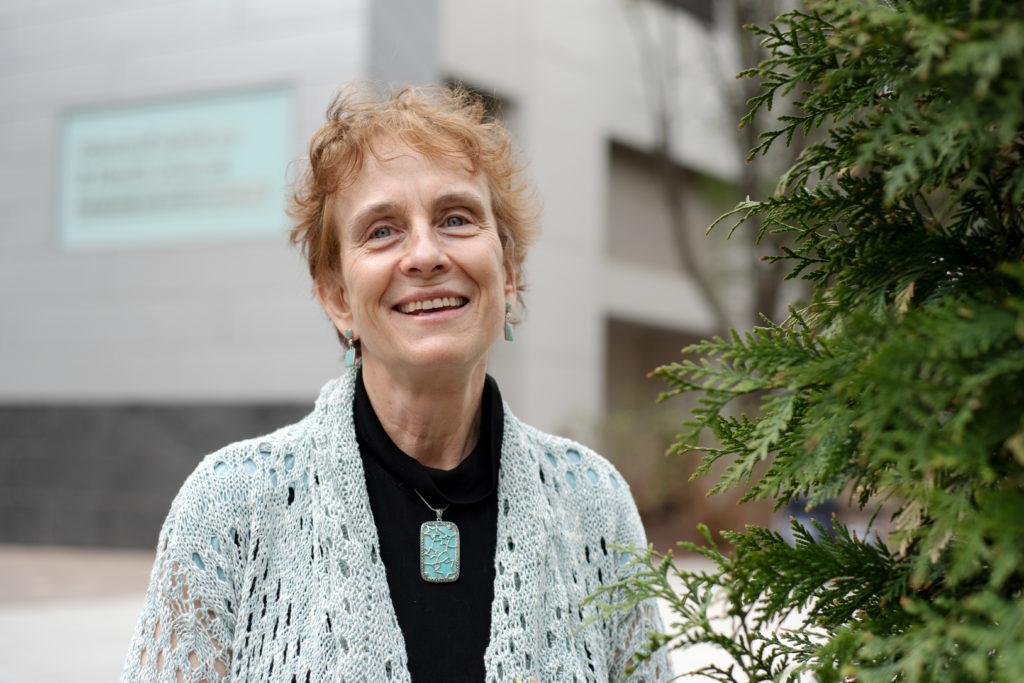The Institute for Spirituality Health within the School of Medicine and Health Sciences will develop teaching models to care for patients’ spiritual health during medical treatments with a $3 million grant from the John Templeton Foundation.
The Advancing Spiritual Care in Everyday Practice is a 10-year initiative that will create a teaching model to educate health care professionals on spiritual care – attending to a patient’s religious needs and existential concerns while they cope with serious illnesses like cancer to heal emotional distress. The John Templeton Foundation – a philanthropic organization that supports financial funds for religious and spiritual knowledge in science – will fund the project’s first three years of setting up training courses and retreats for medical care workers.
Christina Puchalski, a professor of medicine and one of the initiative’s three lead researchers, said the project will educate health care workers and chaplains to include chronically ill patients’ existential life questions in the physical care process to improve their emotional conditions.
“There’s an urgency to be able to address patients suffering spiritual distress as well as support the resources,” she said. “Everybody who takes care of patients should have the skills and the commitment and the appropriate way to do that in their clinical practice.”
Puchalski said a team of palliative care specialists, including herself, who work to increase the quality of life for patients with serious illnesses like cancer, will host two-day courses on interprofessional spiritual care education for doctors as part of the initiative.
She said the courses will encourage clinicians and chaplains to hold small group discussions about the significance of spiritual care and role play hypothetical patient conversations to practice addressing existential questions about life in the clinical setting.
She said the team will also spend a year and a half creating five demonstration projects, which are presentations that outline different spiritual care activities, leadership skills and communication skills assessments, for healthcare professionals and chaplains to implement in clinical practices. Puchalski said other palliative care specialists can refine the demonstration projects to improve research methods and outcomes.
She said the projects can also be used as evidence for studies about spiritual care in clinical settings and attract grants from the National Institutes of Health to expand the network of spiritual care leaders within the medical field.
Puchalski said the teams aim to increase funding for the interprofessional spiritual care education courses and demonstration projects through partnerships with hospital systems, faith-based communities and medical universities during the next decade.
“We want to have different perspectives at the table, so I think growing a field means being open to listening to others, learning how other people view things and growing it with everybody’s input,” she said.
Rev. Trace Haythorn, a co-investigator of the initiative and the CEO of the Association for Clinical Pastoral Education, said health care practices that neglect existential questions of life – concerns about one’s meaning and purpose – and their impacts on patients ignores the religious and spiritual perspectives of medical treatments for serious illnesses.
He said patients express their concerns about their illness in different ways but tend to lean toward life’s questions like “Why is this happening to me?” and “What does all of this mean?”
Haythorn said spirituality is vital to patient care because palliative care specialists’ effective engagements with patients’ individual medical experiences can lead to shorter hospitalization stays.
“This work is not about a particular religious or spiritual perspective,” Haythorn said in an email. “It is about helping clinicians recognize spiritual distress, how to engage chaplains and spiritual specialists, and ultimately how to better serve patients as whole persons.”
Betty Ferrell, the third co-lead of the initiative and the director of the division of nursing research and education at the City of Hope National Medical Center in California, said the team will host two national spiritual training programs every year for health care professionals like social workers, bedside nurses and psychologists throughout the first three years of the initiative.
She said she and two other team members from the City of Hope National Medical Center will routinely meet with chaplains to review any research resulting from the national training programs, five demonstration projects and two interprofessional spiritual care education courses during the next 10 years.
Ferrell said health care professionals should learn to care for a diverse society because patients tend to ask medical questions that center around their different faiths and cultural beliefs as a way to cope once they’re diagnosed with a medical issue.
“It’s really important that we prepare clinicians, so they can provide the spiritual care not only for those people that are familiar to them but for very diverse communities,” she said.








